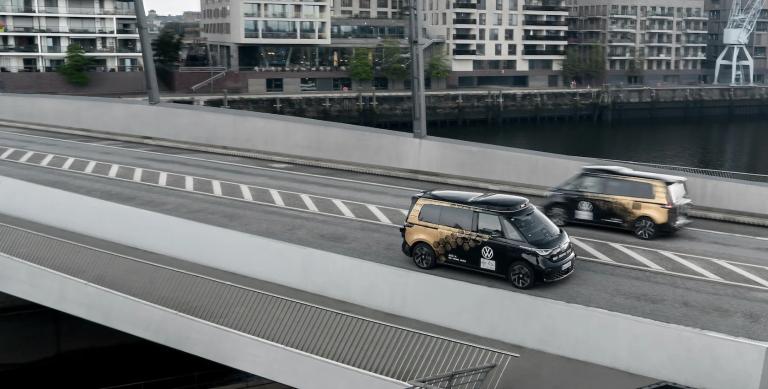Autonomous ridepooling comes to Hamburg
The operational area for the ALIKE project, which will see autonomous shuttles run on the Hanseatic city's streets from 2025, has been defined.
Hamburg, a city decidedly at the forefront of intelligent transportation, is opening the door to autonomous on-demand ridepooling. From mid-2025, as part of the ALIKE project, a number of self-driving shuttles (level 4) will gradually be operational in tests in an area of 37 km2 in the city center.
Smart Mobility
The test has a twofold goal: to make autonomous mobility accessible and to analyze in depth a new innovative service, which in the long run will expand the public transport offerings in Hamburg. The identified area will enable the collection of meaningful data on autonomous driving in real traffic and in particularly challenging situations.
100% electric self-driving vehicles bookable via app
Two 100% electric and autonomous models will be tested in the ALIKE project. One of these will be the Volkswagen ID. Buzz AD, the self-driving version of the ID. Buzz developed by Volkswagen Commercial Vehicles and made available by MOIA, the Volkswagen Group company dedicated to on-demand mobility: a compact and agile vehicle capable of carrying up to four passengers, it is designed specifically for urban use.
The other model will be provided by HOLON, is fully accessible and can carry up to 15 passengers. During road tests, a driver will be on board to intervene if needed.
In total, it is expected that up to 20 self-driving vehicles will be used as part of the project, integrated into an on-demand service so that they can be booked through apps (MOIA and hvv switch).
MOIA: operations and software platform
Sascha Meyer, CEO of MOIA, commented, “MOIA has a dual role in the ALIKE project. We will be the first operator to start test operations with Volkswagen ID. Buzz AD and in addition, our ridepooling system will connect the various operator and vehicle components, bringing them together into an integrated offering over the course of the project. With ALIKE, we are making our strategic goal of an open mobility platform for autonomous shared transportation a reality.”
Research on the acceptance of autonomous driving
In parallel with the technical implementation, the project aims to survey the degree of acceptance of autonomous driving. The Karlsruhe Institute of Technology (KIT) will 'accompany' ALIKE from a scientific perspective and launch the first phase of research in November, with a survey targeting at least 1,000 participants to be completed by the end of 2024. The survey will provide information on the public's perception of autonomous vehicles and what needs should be considered in the next steps of development.
ALIKE project
The three-year ALIKE project aims to develop a future-oriented mobility solution and is funded by the German Federal Ministry for Digital and Transport, with an investment of 26 million euros earmarked for a consortium that brings together six partners: leading the project is HOCHBAHN, a public transport company, then for the automotive sector there is MOIA, the Volkswagen Group's on-demand mobility company, and autonomous driving vehicle manufacturers HOLON and Volkswagen Commercial Vehicles. They are joined by the Karlsruhe Institute of Technology (KIT) as a research partner and the Hamburg Transport and Mobility Development Authority (BVM). “Autonomous driving can reduce traffic congestion in large cities, while providing tailor-made and digital mobility that also brings users to their destinations with shared routes in a way that lowers costs,” commented Volker Wissing, federal minister for digital and transport.
